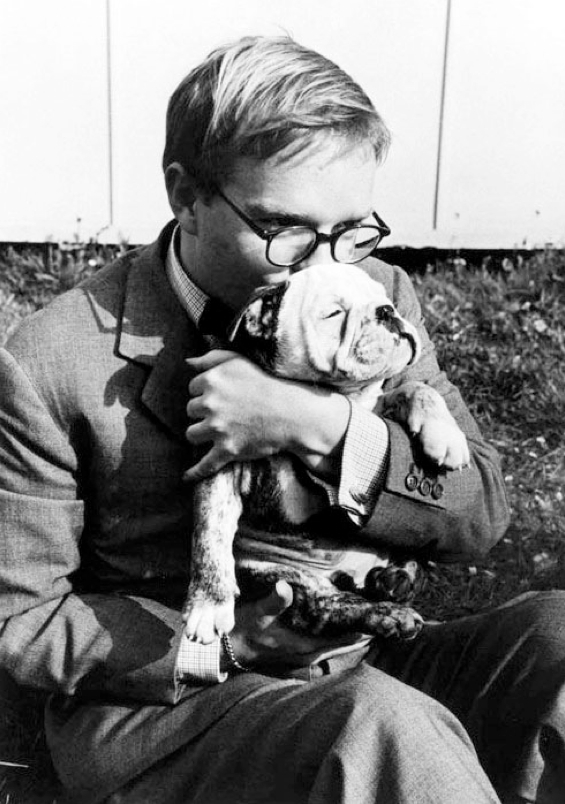
''The world will see you as a monster, always," Capote laments to Smith. Then there are Capote's dealings with the killers, Perry Smith and Dick Hickock (Clifton Collins Jr. Viewers are left to draw their own conclusions. Although Lee serves, in effect, as Capote's researcher, he knows better than to assign her the task of sneaking into a funeral home to peek into the coffins of the murder victims.

Better known as Harper Lee, she is the author of ''To Kill a Mockingbird" - and the moral center of the movie.Ĭapote is the amoral center. And when he doesn't, he can rely on the calm manner and patent goodness of his friend Nelle Harper Lee (Catherine Keener) to get the job done. He charms them, of course, as he charms other locals. In ''Capote," we see Hoffman using the Hollywood connection to impress the chief investigator (Chris Cooper) and his wife. And in creating Holly Golightly, for ''Breakfast at Tiffany's," he provided Audrey Hepburn with her most memorable role. He wrote the script for John Huston's ''Beat the Devil." He famously (and obtusely) profiled Marlon Brando for The New Yorker. Of course, the movies had long contributed to Capote's glamour.
Truman capote harold halma movie#
Capote attained show-biz Valhalla in 1974: his very own ''Dean Martin Roast." Two years later, he became a movie star, of sorts, playing a lead part in a Neil Simon comedy, ''Murder by Death." (Capote and Johnny Carson were neighbors at the United Nations Plaza.) After substance abuse began to undo him, in the '70s, he was a fixture on any talk show that would have him. He was a fixture on ''The Tonight Show" in the 1960s. Long before Robert Morse won a Tony and an Emmy for playing him in ''Tru," Capote was playing himself in a one-man play of his own making. The lisp and high-pitched voice had become a kind of shtick, as useful (and predictable) as George Burns's cigar or Tiny Tim's ukulele. That must sound preposterous to anyone familiar with Capote only from his television heyday, after the publication of ''In Cold Blood." Halma's faun had gotten too plump, unmistakably bald, and even more unmistakably smug. The term ''literary pinup" verges on oxymoron, but Capote comes unnervingly close to bringing it off. Looking as much like a satyr as waif, the 23-year-old author lies (that verb again) on a divan and regards the camera with eyes older than Caligula's. The most memorable portrait is the one Harold Halma took for the dust jacket of Capote's first book, ''Other Voices, Other Rooms," in 1948. Sitting for the likes of Irving Penn, Cecil Beaton, Richard Avedon, Capote more than held his own. Anyone who doubts that should look at his author photos. How had a flamboyantly gay ornament of New York society managed to earn the trust of Kansas law-enforcement officials, not to mention the murderers themselves? That's where Capote the performer came in.Ĭapote's knack for performance was there from the beginning. Finally, there was the fact of it being Capote, the high-living author of ''Breakfast at Tiffany's," who had written such a book. The result was a founding text of the New Journalism. He wrote the book as a ''true-life novel," combining factual content with fictional techniques. But so, too, was Capote's unprecedented approach. The material itself was shocking enough: the murder of a Kansas farm family by two drifters in 1959.

It's hard to imagine today the sensation ''In Cold Blood" caused in 1965 when it was serialized in The New Yorker, then published as a book in 1966. It also firmly places him within a long Hollywood tradition of journalists who play fast and loose with their sources. What ''Capote" emphasizes, with a vengeance, is the performance that enabled the book. It might more accurately be called ''In Cold Truman." Other than the occasional shot of Capote pounding away at his typewriter, the movie can't show the actual writing of ''In Cold Blood," nor do Miller and Futterman want it to. The making of that book is what concerns director Bennett Miller and screenwriter Dan Futterman in ''Capote," which opens Friday and stars Philip Seymour Hoffman in the title role.Īlthough derived from Gerald Clarke's 1988 biography, ''Capote" is less biopic than morality play. His best-known book, ''In Cold Blood," lies (note the ambiguity of the verb) at the intersection of those two activities. He was also a great, if not talented, performer, whose performing kept him famous. Truman Capote was a talented, if not great, writer, whose writing made him famous.


 0 kommentar(er)
0 kommentar(er)
